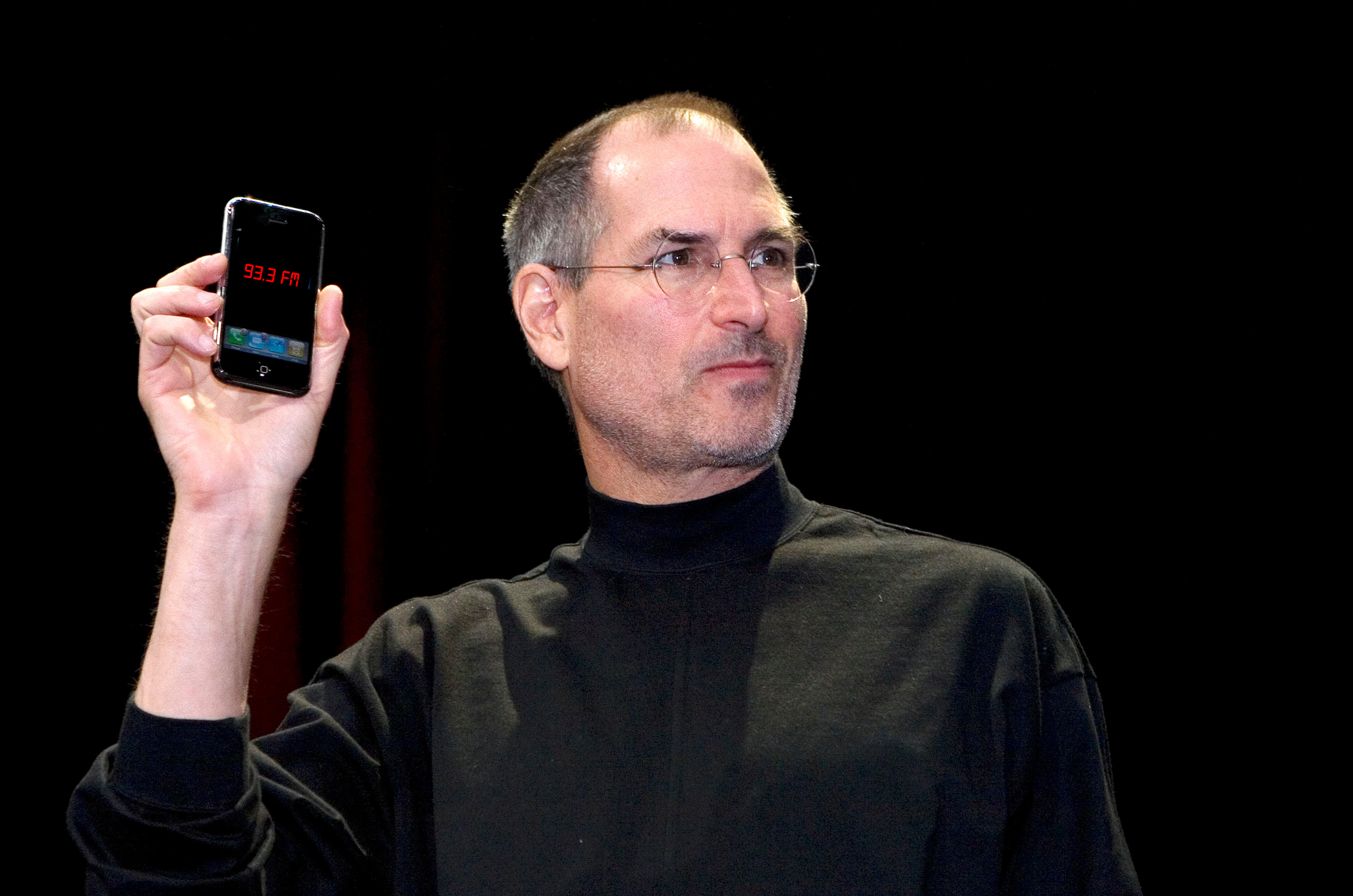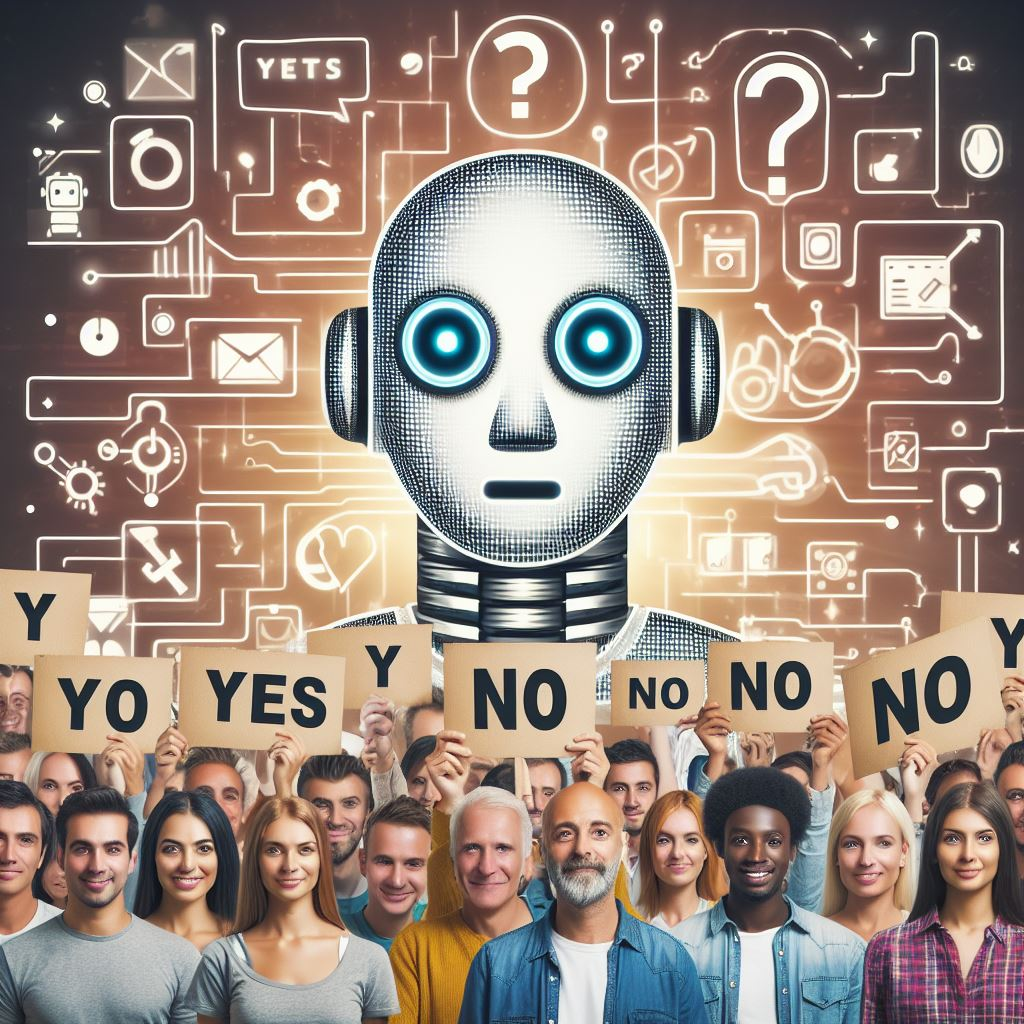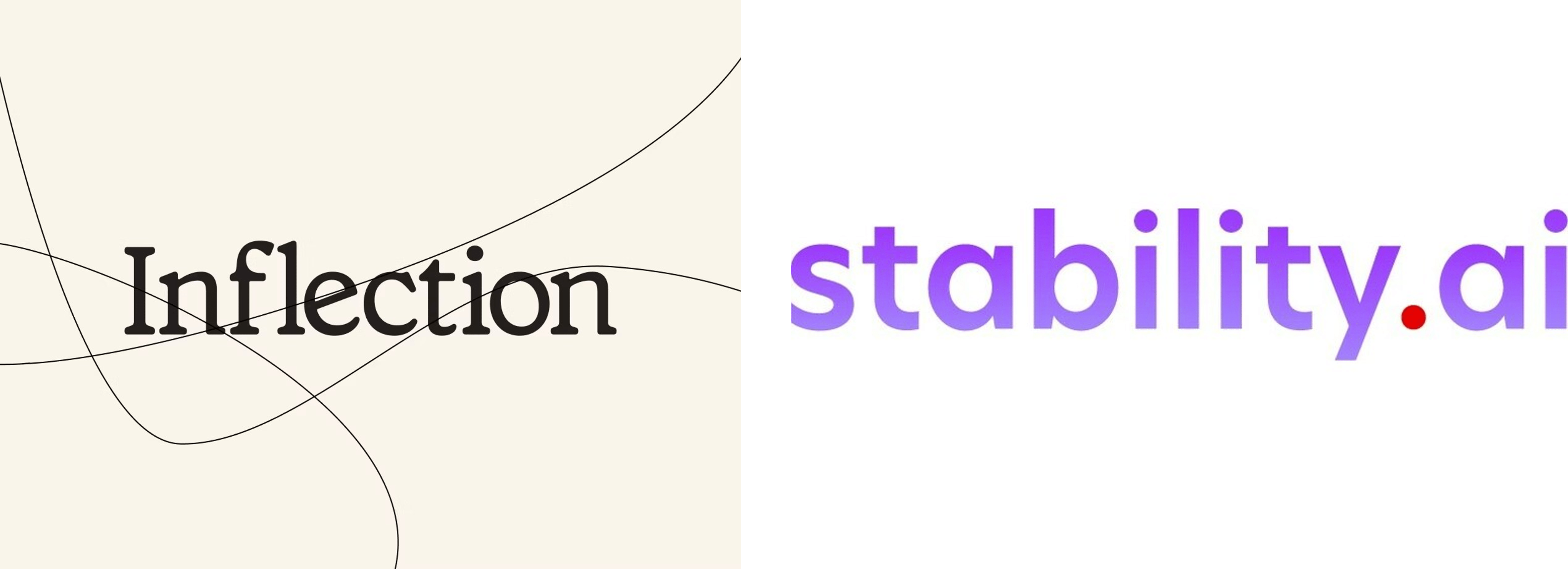The AI Revolution marches on!
Or does it?
For the last eighteen or so months, the buzz over AI has been overwhelming – but far from positive. This breakthrough technology has been widely hyped across news media sources, alternatively depressing and elating consumers.
The advent of ChatGPT appeared to do for AI what the iPod did for music listening and Serial did for podcasts.
But the iPod is now virtually obsolete, replaced by our smartphones and tablets. And the podcasting universe continues to chase the next big hit after Serial like the radio and music industries did after the Beatles. Sustainable successes and monetization are elusive. With any new technology, it is exceedingly difficult to innovate at the original rate that first blew our minds.
The iPhone is a great case in point. The original was the very definition of a “game changer.” That first smartphone from Apple was indeed a moment on the tech curve. And it was turbocharged by Apple’s creation of its App Store three years later. “There’s an app for that” isn’t just another marketing slogan. It became the mantra that has powered business, organizations, and other entities on smartphones for a decade and a half.

But as next generation iPhones kept being released year after year, innovation slowed. These days, the hot “new features” are things like improved cameras and a titanium case – a far cry from the enthusiasm Steve Jobs generated when he held up the first iPhone at the Macworld Conference & Expo in San Francisco back in 2007.
Up next? AI, the next big thing.
That’s been the buildup since late in 2022, and the combination of abject fear and sheer exuberance has added new chapters to AI’s story. Over the last many months, we’ve continued to witness AI applications that are stunning and inspiring, but also with sobering implications. Our industry – radio, music, audio – has witnessed the AI wave – synthetic voices and faces, exponential efficiencies, AI-generated music, bot DJ sidekicks.
And the AI beat goes on.
But in recent days, serious thinkers in the tech space are conjecturing over whether AI’s meteoric progress has begun to sputter, limiting the ultimate impact of this innovation. An article in the New York Times by a trio of seasoned tech writers makes this suggestion about AI’s future;
innovation. An article in the New York Times by a trio of seasoned tech writers makes this suggestion about AI’s future;
“AI Start-Ups Face A Rough Reality Financial Reality Check”
And the story kicks off with this ominous lead:
“Call it the end of the beginning of the AI boom”
The authors note the financial requirements for AI investment that might lead to sustainable monetization have already reached a near impossible threshold.
They cite a start-up called Inflection AI. After raising $1.5 billion (that’s billion with a B), the company has returned very little capital and has already pivoted from its original business plan.
Another epic fail is Stability AI, a new company that failed to live up to the promise of its name. Despite raising massive investment, the Times writers tell us the CEO of this once promising startup has been replaced amid staff layoffs.

And there are others, leading to the conclusion the only players with pockets deep enough to play in the AI arena will be Trillion Dollar Death Stars like Microsoft, Google, and Meta. Almost everyone else will be priced out. Even after the Internet meltdown in the late ’90s, the online world spawned untold thousands of entrepreneurs with a laptop and an imagination. In fact, starting up a company on the worldwide web doesn’t necessarily require truckloads of cash. But when it comes to the world of AI, many analysts feel even well-capitalized businesses will not be able to compete.
Part of the reason may be that unlike the Internet boom-turned-bust of the late ’90s, the demand on AI start-ups to deliver profits…and fast…has already taken root in the sector. The Times quotes Ali Ghodsi, CEO of Databricks, a company that works with fledgling AI start-ups:
“It doesn’t matter how cool it is what you do – does it have business viability?”
Obviously, this is a much higher bar than those dotcom pioneers faced 30-odd years ago when Silicon Valley was already overheating.
The amount of money required to launch AI businesses is already off the charts. The Times story quotes a Pitchbook analysis that shows investments in AI during the past three years have reached the $330 billion mark – and growing. Still, successes are a rarity.
And while a product like OpenAI’s ChatGPT is raking in those $20/month fees for the premium version, it is not known how many billions continue to be poured into this technology with few returns.

Christopher Mims (pictured) from the Wall Street Journal who is especially skeptical of AI’s current trajectory. His headline:
“The AI Revolution Is Already Losing Steam”
Similar to the piece in the Times, Mims questions whether the actual output of AI innovation moving forward will generate enough ROI to justify the massive investments required to keep the technology percolating.
He posits the rate of AI progress is slowing, and cites the time required for a new tool to achieve mass acceptance in workplaces. An additional barrier is the limit on information and data AI tools can process. There’s only one Internet, and most AI engines have already been taught to access it. Where will further knowledge come from that can make AI more powerful and all-knowing?
The next logical source of info is…wait for it…AI engines learning from each other. But as Mims points out, this learning method where bots teach bots is fraught with danger.
Engineers call this “synthetic data,” and many predict it will not improve AI’s learning curve. Mims already notes progress has slowed from the early days of ChatGPT where it seemed like new innovation leaps were occurring daily.
And that leads us to the point where the difference between AI engines has narrowed, giving everyone essentially equal access to the AI tool kit. When everyone’s using the same base of knowledge, the edge narrows. Mims says we’re heading to that point with AI now.
The commoditization of AI seemed impossible a year ago, but that could be the road we’re on, where progress is incremental and the costs to achieve it are still astronomical.
And rather than AI becoming a staple at most workplaces, Mims says the data suggest a lot more people are “playing with it” than integrating it into their systems. And that leads him to the inevitable conclusion that AI might not be that big a difference-maker when it comes to productivity increases in the office.
To that end, consider this conclusion by Wharton professor Peter Cappell, paraphrased by Mims:
 “While these systems can help some people do their jobs, they can’t actually replace them. This means they are unlikely to help companies save on payroll.”
“While these systems can help some people do their jobs, they can’t actually replace them. This means they are unlikely to help companies save on payroll.”
If true, it’s a level-setter for the radio business where much of the early speculation was that AI would wipe out even more jobs than RIFs.
And then there’s the problem that almost always revolves around tech adoption – the people. In a brilliant, self-effacing article Mims also wrote last month on the 10th anniversary of WSJ tech column – “What I Got Wrong in a Decade of Predicting the Future of Tech” – he says humanity often bollixes the progress of new innovation.

Nancy Lyons (pictured) of the Twin Cities-based agency Clockwork calls it “the analog transformation.” And it amounts to the same thing: all the bright, shiny tech we see each January at CES faces the vagary and illogic of human bias, skepticism, fear, and stubbornness. Much of this explains why newspapers and radio companies, in particular, continue to drag their organizational feet when it comes to digital transformation.
When we put our sixth research study of air talent in the U.S. into the field this July, we’ll learn first-hand whether our air talent are utilizing AI tools and bots in the preparation of their shows or additions such as character voices, synthetic phones, or even bot sidekicks.
There’s one AI tool for radio out there we’ve been impressed with: Tracy Johnson’s Radio Content Pro, a techie prep monster that can especially help resource- depleted shows. We’ll tell you more about this service in the coming weeks and months, but we believe it can be highly useful – not replacing producers or prep – but to make shows sound better.
depleted shows. We’ll tell you more about this service in the coming weeks and months, but we believe it can be highly useful – not replacing producers or prep – but to make shows sound better.
And perhaps that’s the ultimate key to the adoption of AI, or any technology. Is it tech for tech’s sake, does it replace a human’s contributions less effectively, or is it just a bunch of hype?
Mims’ conclusion in his 10th anniversary column sums it up nicely:
“By paying attention to what’s just over the horizon, my hope is that in our collective, imperfect, democratic way, we can figure out how to use new technologies, rather than being used by them.”
I love that, and might add it was written by a human.
To that end, AI will not solve all our problems, continuing to remind us of the need for hard work, a hearty imagination, and big dreams:
I collect ads like rich people collect cars.
The 10 most iconic ads I’ve found: pic.twitter.com/2CZsFWMCN8
— Madni Aghadi (@hey_madni) June 1, 2024
Our company is dedicated to helping you figure this out. To that end, sign up for Chris Brunt‘s weekly newsletter, “AI Edge,” which is designed to help radio broadcasters get our arms around this technology here.
(This post was written by a human, but the image at the top was created by a bot, Microsoft Copilot.)
- What To Do If Your Radio Station Goes Through A Midlife Crisis - April 25, 2025
- A 2020 Lesson?It Could All Be Gone In A Flash - April 24, 2025
- How AI Can Give Radio Personalities More…PERSONALITY - April 23, 2025




The power and other resources required for the expansion of AI will cost a LOT of money. Small players may be able to service corporations that want to create AI that references in-house knowledge bases in order to make institutional knowledge more available to a wider variety of people. The computing power will be provided by the corporation and access will be limited to keep proprietary information in-house. We may see that in radio as big players invest in making deals with iconic voices and incorporating production libraries and techniques. Corporate bean counters will give any technology that promises to cut costs a lot of opportunities to fail if they think it will save money in the long run, even if listeners find the results wanting.
Trillion Dollar Death Stars! Good one. Oboy, this is a great post for moi. Permission to respond Captain? It’s long but informative(?).
“It doesn’t matter how cool it is what you do – does it have business viability” Excuse me, but I’m embarrassed by the way that fundamental business idea seems to be put right out there as if it’s a new revelation! more…
“…Mims questions whether the actual output of AI innovation moving forward will generate enough ROI to justify the massive investments”. Again, not new. Heck, most satellites from the 80’s & 90’s barely, if at all, ever made that investment back. Pandora, anyone? And there are more of those failed revenue stories than the successful revenue start-ups. Cough, Digital Generation Systems, Inc. Cough (Although, the DG stock price never preformed well). I sold it all a day after lockup, at the top. shrug. BTW, RIP Scott K. GINSBURG. Without him buying DG Systems, I’m certain it would have never dominated the industry for 22years!
https://radioink.com/2024/06/03/dallas-philanthropist-and-former-radio-exec-scott-ginsburg-dies/
“Obviously, this is a much higher bar than those dotcom pioneers faced 30-odd years ago..” It depends, I say, but yeah. Hellōōōō?!
“Successes are a rarity”. Yet, Sillycon (my Coin)Valley still must raise $$$ from corporate retirement funds (if those are still a thing 😂) and high net worth individuals to maintain the Venture Group with their own high salaries. So they continue to slightly fool their investors about the financial viability of that hot, new, thing. Imo, the few Venture firm investors that actually read the business plan *and don’t invest* never say a word, fearing exclusion from the next big opportunity. It’s all been a high-stakes game and a not so secret koretsu for many decades. It did help me and the DG boys bcuz insiders can benefit.
“While these (AI) systems can help some people do their jobs, they can’t actually replace them. This means they are unlikely to help companies save on payroll.”
Well I don’t know what a RIF is but *I do know* that a solid, old fasioned business model combined with truly, innovative software, made an automated broadcast system that does entirely do complete job functions. Is it helpful? I believe so. But it was necessary to enable a trembling industry to perform much better in not just the digital age but also the data age. Nobody else was doing anything of lasting value for radio.
Had to lookup “bollix”: “to cause something to fail or go wrong.” Although I would add, “slow down”, it describes “the analog transformation” as far as the people are concerned. Few really know how long our little team has been at this bootstrapping a company. It takes some tough MoFos to keep hacking away at success for decades. We’ve got several clients with up to 5+ year closing cycle. But all agree that they should’ve started sooner. And not one client we have has ever fully quit the service.
Lastly. “By paying attention to what’s just over the horizon, my hope is that in our collective, imperfect, democratic way, we can figure out how to use new technologies, rather than being used by them.”
Well, hallelujah!! But I continue to NOT hold my breath 😆
ln closing: From an old jock’s POV, I’ll be very interested in what AI tools the studio/production for on-air may come down the pike. I miss having fun.
This reminds me of a quote I heard in a training about how to use AI: “AI won’t replace humans, humans who know how to use AI will replace those who don’t.”